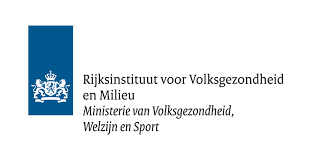Berichten over uw Buurt
Zoals vergunningen, bouwplannen en lokale regelgeving
Zoals vergunningen, bouwplannen en lokale regelgeving
Adressen en contactpersonen van overheidsorganisaties.
Dataset
| State | Available |
|---|---|
| Data owner | Rijksinstituut voor Volksgezondheid en Milieu (Rijk) |
| Updated | 12-10-2025 |
| License | CC-BY (4.0) |
| Thema |
|
| Publicity level | Public |
| Metadata | Download (XML/RDF) |
You can do a datarequest to request a specific dataset.
Make a data request
Dit is een dataset die landelijk dekkend is. De data heeft betrekking op heel Nederland.
CloseDe Voedselconsumptiepeiling brengt in kaart wat Nederland eet en drinkt. De voedselconsumptiegegevens geven inzicht in de consumptie van voedingsmiddelen, de inname van macro- en microvoedingsstoffen, de inname van potentieel schadelijke chemische stoffen en in de ontwikkelingen hiervan (trends). De cijfers in deze tabel zijn afkomstig uit de Voedselconsumptiepeiling (VCP) 2012-2016 van het Rijksinstituut voor Volksgezondheid en Milieu (RIVM).
Deze tabellen bevatten gegevens over de inname van voedingsstoffen per dag van mensen in de leeftijd van 1 tot 80 jaar. De gegevens zijn uitgesplitst naar geslacht en leeftijd en daarnaast voor verschillende bevolkingsgroepen. Niet alle uitsplitsingen zijn beschikbaar, dan worden er lege regels getoond. De beschikbare opsplitsingen zijn:
Er zijn 2 tabellen beschikbaar op statline over de inname van macro- en micronutriënten. Het verschil tussen deze 2 tabellen is dat de ene tabel de inname uit voedingsmiddelen en supplementen weergeeft en de andere tabel de inname alleen uit voedingsmiddelen. Daarbij kan nog worden opgemerkt dat in de tabel waarin supplementen wel zijn meegenomen alleen de relevante nutriënten zijn weergegeven. Dat wil zeggen: alleen die nutriënten worden weergegeven waaraan supplementen hebben bijgedragen. Het betreft daarbij de volgende nutriënten: Calcium, Koper, Vezel, Folate equivalenten, Foliumzuur, IJzer, Magnesium, Visvetzuren (EPA en DHA), Fosfor, Kalium, Retinol, Retinol activiteit equivalenten, Selenium, Vitamine B1, Vitamine B12, Vitamine B2, Vitamine B3, Vitamine B6, Vitamine C, Vitamine D, Vitamine E, Zink.
De voedingsgegevens zijn verzameld onder circa 4000 kinderen en volwassenen met twee 24-uursvoedingsnavragen. Meer informatie over de studie is te vinden op de website www.wateetnederland.nl (zie ook bij de publicaties op deze website). Zie ook de andere tabellen op RIVM-Statline.
[English]
There are 2 tables available on statline about the intake of macro- and micronutrients. The difference between these 2 tables is that the one shows the intake from foods and dietary supplements and the other table shows the intake from foods only. NB: In the table where supplements have been included only the relevant nutrients are shown. I.E: Only those nutrients are shown that have a contribution by supplements. This concerns the following nutrients: Calcium, Copper, Fibre, Folate equivalents, Folic acid artificially added, Iron, Magnesium, N-3 fish fatty acids (EPA+DHA), Phosphorus, Potassium, Retinol, Retinol activity equivalents, Selenium, Vitamin B1, Vitamin B12 Vitamin B2, Vitamin B3, Vitamin B6 , Vitamin C, Vitamin D, Vitamin E, Zinc.
The data have been collected from around 4,000 children and adults with two 24-hour dietary recalls. More information about the study can be found on the website www.wateetnederland.nl (see also publications on this website) or in the other tables on RIVM-Statline.
Gegevens beschikbaar: 2012-2016
[English] Data available from: 2012-2016
Status van de cijfers: Version 2019-06
[English] Status of the data: Version 2019-06
Wanneer komen er nieuwe cijfers? In 2022. De volgende peiling loopt van 2019 tot en met 2021.
[English] When are the data updated? In 2022. The next survey will be performed from 2019 till 2021.
Landing page: https://statline.rivm.nl/portal.html?_la=nl&_catalog=RIVM&tableId=50073NED
No feedback found.
You can do a datarequest to request a specific dataset.
Make a data requesthttps://statline.rivm.nl/#/RIVM/nl/dataset/50073NED/table
Mean usual mean intake per day, P5 P25 P50 P75 P95 nutrients age sex
https://dataderden.prod.cbsp.nl/ODataFeed/OData/50073NED
Mean usual mean intake per day, P5 P25 P50 P75 P95 nutrients age sex
No feedback found.